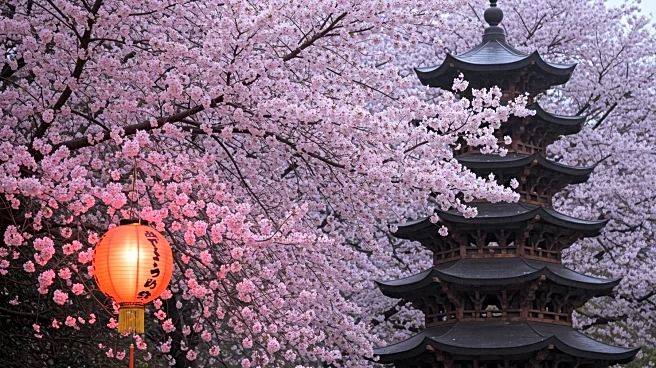What's Happening?
Japan and China are marking the 80th anniversary of the end of World War II with significant events, albeit on different dates and in distinct manners. Japan holds a solemn ceremony on August 15, the day Emperor Hirohito announced Japan's surrender, while China showcases its military might with a parade on September 3, the day after Japan's formal surrender. The historical context of Japan's occupation of China during WWII continues to affect relations between the two nations. China's military parade serves as a reminder of its growing power and territorial ambitions, while Japan's ceremony reflects on its wartime actions and the impact on regional tensions.
Why It's Important?
The differing commemorations highlight ongoing historical tensions between Japan and China, influencing current diplomatic and military relations. China's military display underscores its assertiveness in the Pacific, raising concerns for Japan and other regional stakeholders. Japan's focus on remembrance and reflection may serve as a counterbalance to China's militaristic approach, but also invites criticism from China regarding Japan's defense policies. The events could impact regional security dynamics, with potential implications for international relations and defense strategies in the Asia-Pacific region.
Beyond the Headlines
The anniversary events reveal deeper cultural and historical narratives that continue to shape Japan-China relations. China's emphasis on military strength reflects its strategic priorities and historical grievances, while Japan's solemn ceremony underscores its efforts to reconcile with its past. The contrasting approaches may influence public perceptions and diplomatic interactions, highlighting the complex interplay of history, memory, and politics in shaping bilateral relations.









